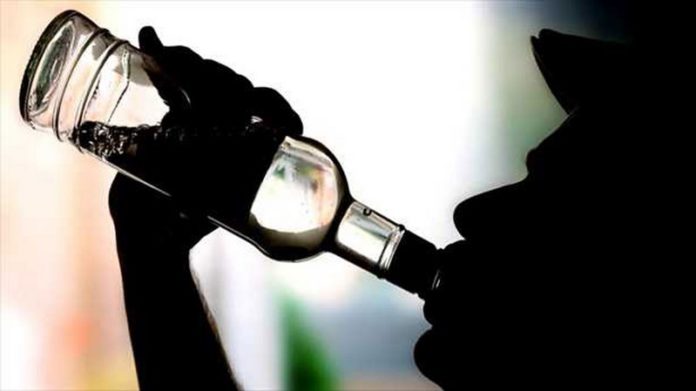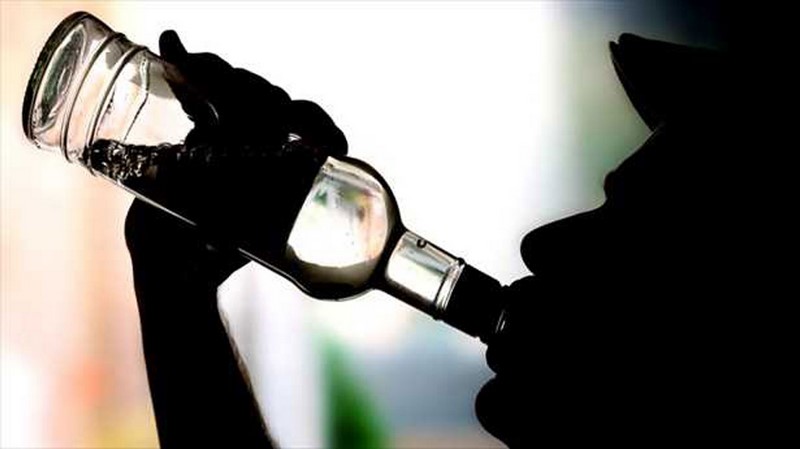
Kenya’s deputy president has tried to take a radical step to reduce alcohol abuse in the country’s central region by saying that county governments should only allow one pub per town, but not everyone is convinced that this is a good plan.
“Even if they shut down all these bars, we will still drink,” Charles Ngugi tells me as he sips a local popular draft beer.
It was dark in the bar, but the morning light came through as the blinds flapped in the wind.
“This is not cheap or illegal liquor, so why do they want to interfere with my lifestyle and my party mood?” he asks as he raises his voice to be heard above the music blaring from the counter that nearly drowns out our conversation.
There are four other men in the small bar, all drinking as they sit at wooden benches set next to long tables.
A middle-aged man staggers into the bar and dances and sings along to a song in the Kikuyu language before slumping on one of the benches to join his friends.
In a few minutes, he is asleep.
It is 11 o’clock in the morning. According to the law this bar should not be open for another six hours. And it should shut by 23:00.

Three other small bars in the village of Kanderendu, in Muranga county some 70km (43 miles) from the capital, Nairobi, are also open with revellers inside.
It is places like these that are the target of Deputy President Rigathi Gachagua’s ire. In January, he said that the number of bars and restaurants allowed to operate in each town should be limited to just one.
But those who drink do not agree that this will help stop them imbibing.
“If small bars like this are closed down, more people like me will resort to going down the river to get changaa [the local traditional brew],” Mr Ngugi says.
Illegal brewers have traditionally used riverbanks to make changaa. There is easy access to water and in most places, it is hard for the authorities to reach the brewing dens.
Central Kenya is battling what the government warns is an alcohol and drugs epidemic.
The authorities have not provided any data to back this up but they say there is a problem, which they blame on the high number of unregulated bars and pubs and an influx of cheap, illicit brews.
It is also not clear why central Kenya was singled out – but a visit to the region shows there is a proliferation of drinking dens. The Muranga county authority says the number of pubs, as well as wine and spirit shops, has grown exponentially since the Covid 19 lockdown.
‘Destroying a generation’
Liquor licences have become the most sought-after business permit in the county, the BBC has been told.
Technically, it is the counties which have responsibility for licensing, but as he comes from the central region, Deputy President Gachagua has a lot of influence here.
“[County] governors must make a decision, that in the pursuit of generating revenue, licensing every kiosk, every outlet to be a bar and restaurant, is a way of destroying an entire generation and that is not right,” he said.
Rosemary Kimani, 58, has personal experience of the impact of drinking.
She says she lost her husband to alcoholism. Three of her children, including her daughter, are all battling dependency.
“That river and these bars will be the end of us all,” she says in her home in Kiunyu village. She moved there in the early 1990s to start a family.
“We can’t even fetch water from there because the gangs that control illegal breweries have taken over.
“You won’t see many young people here in Kiunyu with girlfriends, or with families. All they do is wake up and go to bars to drink,” she adds.
“How are we going to get grandchildren if our own children have abandoned their wives, have no desire for sex and only drink and sleep all day?” she asks.
Ms Kimani backs the national government’s move to close down what she calls “killer dens”.
The central government wants all places where drinks are available to be limited to selling alcohol between 17:00 and midnight.
There is some evidence that licences are gradually not being renewed, but there has not yet been a mass shut-down of drinking places.
Bar and restaurant owners say the government has got its priorities all wrong by targeting legitimate businesses.
“The problem is not bars and pubs, because we provide social places where people can mingle, we pay taxes for development of the nation and we employ tens of thousands of people,” argues Simon Mwangi Njoroge, national chairman of the Bar Owners Association.
“In the central region alone, we have around 17,000 businesses employing a workforce of 100,000 people.”
Local NGOs and the church have intervened to set up rehabilitation centres, but they are expensive and out of reach for many addicts.
“We genuinely want to deal with alcoholism and its negative social effects but we have to be very careful about knee-jerk reactions. Is our issue with legitimate businesses or illicit drinks?” says Steven Kimani, the politician with responsibility for health in Muranga county.
“At the moment we do not have a rehabilitation centre sponsored by our county government, because this is not our priority. Our focus is to limit access to illicit brews that’s plagued our county and the rest of central Kenya.
“But this discussion about bar closures is premature. What criteria do you use to shut down businesses? What data are you using to claim that we are most affected? There’s none,” he tells the BBC.
The National Authority for the Campaign Against Alcohol and Drug Abuse is currently collecting data, but says it has been concerned about the mushrooming of bars, and is worried about the prevalence of illicit brews in central Kenya.
Experts are warning that an entire generation could be lost if nothing is done to tackle the issue.
For those who have already been affected, change cannot come soon enough.
“It’s a national disaster,” says widow Rosemary Kimani.
